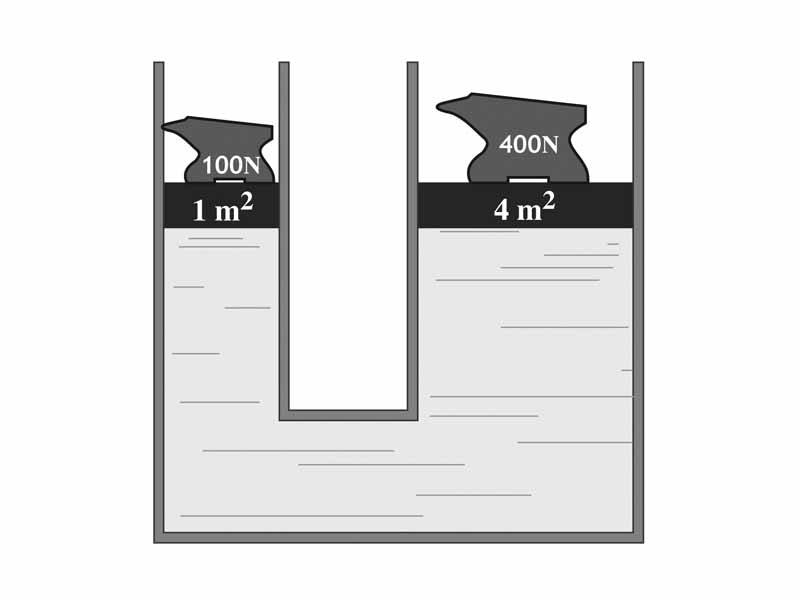Interdisciplinary Note (1 of 13)
Simple machines convert a smaller input force, the effort, into a larger output force, the load. Pascal's Law is the basis for the operation of one type of simple machine, the hydraulic press.
In its simplest form, a hydraulic press consists of two hydraulically coupled pistons, one small and one large. A small force is applied to a smaller piston. By Pascal's Law, an increase in pressure in the small piston is transmitted undiminished throughout the fully enclosed hydraulic fluid to the large piston, where a large force is exerted.
As with all frictionless simple machines, conservation of energy applies. The amount of work performed by the two pistons must be equal in magnitude, so the displacements at the two pistons cannot be equal. At the small piston, a small force translates through a large displacement. At the large piston, a large force translates through a small displacement. The work in both cases is equal.
